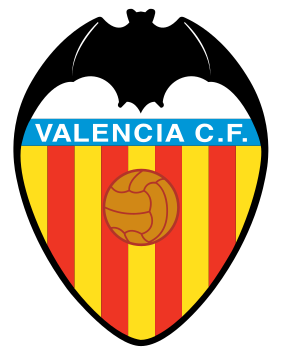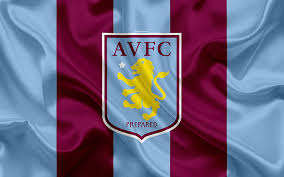
Valencia CF
Valencia CF is one of Spain’s most historic and respected football clubs, known for its passionate supporters, unforgettable European nights, and tradition of producing world-class players. Founded in 1919, the club has become a symbol of the city of Valencia and continues to play a significant role in both Spanish and European football. With its iconic home ground, Mestalla Stadium, and a legacy filled with trophies, Valencia remains a powerhouse of La Liga and a club with global recognition qq88.
The Origins of Valencia CF
Valencia Club de Fútbol was officially established on March 18, 1919. From the very beginning, football became a cultural identity for the people of Valencia. The club quickly gained popularity and established itself as a competitive force within Spain. Mestalla Stadium, which opened in 1923, became the heart of the club, a venue that still stands as one of the most historic stadiums in Europe. Over the decades, Mestalla has witnessed unforgettable matches, thrilling victories, and the rise of legendary footballers.
Rise to Prominence in Spanish Football
Valencia CF made its mark in Spanish football during the 1940s, winning three La Liga titles and two Copa del Rey trophies. This period was crucial in establishing the club among Spain’s elite. Known for its attacking style of play and dedicated fan base, Valencia quickly became a respected rival to traditional giants such as Real Madrid and FC Barcelona.
The club continued to grow throughout the 20th century, consistently competing in domestic and European tournaments. By combining strong management, academy development, and smart transfers, Valencia ensured its status as one of the most decorated clubs in Spain.
European Glory and International Recognition
While Valencia had long been successful domestically, the club rose to international prominence in the late 20th and early 21st centuries. The late 1990s and early 2000s were the golden years for the club. Under coaches like Héctor Cúper and Rafael Benítez, Valencia became a force in European competitions.
Valencia reached consecutive UEFA Champions League finals in 2000 and 2001, narrowly losing to Real Madrid and Bayern Munich. Despite the heartbreak, these campaigns established Valencia as a European powerhouse. The highlight came in 2004 when Rafael Benítez led the team to a La Liga title and the UEFA Cup (now known as the Europa League), completing one of the most memorable seasons in the club’s history.
Trophies and Achievements
Valencia CF’s trophy cabinet reflects its long history of success. The club has won:
-
6 La Liga titles (1941–42, 1943–44, 1946–47, 1970–71, 2001–02, 2003–04)
-
8 Copa del Rey trophies, including the most recent triumph in 2019
-
1 Spanish Super Cup (1999)
-
1 UEFA Cup Winners’ Cup (1980)
-
1 UEFA Cup/Europa League (2004)
-
2 UEFA Super Cups (1980, 2004)
These achievements not only highlight Valencia’s domestic strength but also its ability to shine on the European stage.
The Mestalla Experience
No introduction to Valencia CF would be complete without mentioning the Mestalla Stadium. With a capacity of over 48,000, it is one of the oldest stadiums in Spain and carries an atmosphere unlike any other. The steep stands bring fans incredibly close to the pitch, making it a fortress for the home team.
Mestalla is not just a stadium but a cultural landmark in Valencia. Fans from around the world travel to experience its unique atmosphere, especially during high-stakes matches against La Liga’s biggest rivals. Although plans for a new stadium, Nou Mestalla, have been ongoing, the historic Mestalla remains the club’s spiritual home tải app qq88.
Famous Players and Legends
Throughout its history, Valencia CF has been home to many legendary footballers who have left a lasting impact on the club and world football. Some of the most iconic names include:
-
Mario Kempes – The Argentine striker who was a star in the 1970s and led Valencia to Copa del Rey and European success.
-
Gaizka Mendieta – The midfield maestro and captain during the club’s Champions League finals era.
-
David Villa – Spain’s all-time top scorer, who shone at Valencia before moving to Barcelona.
-
Santiago Cañizares – The legendary goalkeeper who represented the club for over a decade.
-
David Silva and Juan Mata – Both products of Valencia who went on to achieve global recognition.
These players helped elevate Valencia’s reputation and showcased the club’s ability to nurture talent.
Valencia’s Youth Academy – A Factory of Talent
Valencia is also renowned for its youth academy, known as the Ciudad Deportiva de Paterna. Many homegrown players have gone on to play for the first team and other elite European clubs. The academy emphasizes technical ability, discipline, and a deep understanding of the game. With names like Jordi Alba, Isco, and Ferran Torres coming through its system, the academy continues to prove its importance in shaping Spanish football.
Challenges and Resilience
Like many historic clubs, Valencia has also faced periods of financial instability and inconsistent performances. Ownership disputes, economic challenges, and managerial changes have occasionally disrupted the club’s progress. However, the resilience of Valencia CF and its supporters has always kept the club competitive. The Copa del Rey victory in 2019 against Barcelona was a reminder of Valencia’s fighting spirit and ability to shine on the biggest occasions.
Global Fan Base and Modern Identity
Today, Valencia CF is more than just a football team; it is a global brand with millions of supporters worldwide. The club’s official presence across social media platforms, international fan clubs, and participation in global tournaments has expanded its reach. Valencia’s emphasis on youth, tradition, and competitive football makes it an attractive club for fans and players alike.
Conclusion – Valencia CF’s Lasting Legacy
Valencia CF stands as one of Spain’s most historic and respected football institutions. With six La Liga titles, multiple domestic cups, and European triumphs, the club has secured a place among the giants of the game. Mestalla Stadium, legendary players, and unforgettable European nights have all shaped the club’s identity.
Despite challenges in recent years, Valencia’s passion, tradition, and commitment to excellence ensure that it remains a major force in Spanish football. As the club looks toward the future, it carries with it a proud legacy that continues to inspire both fans in Valencia and supporters around the world.




